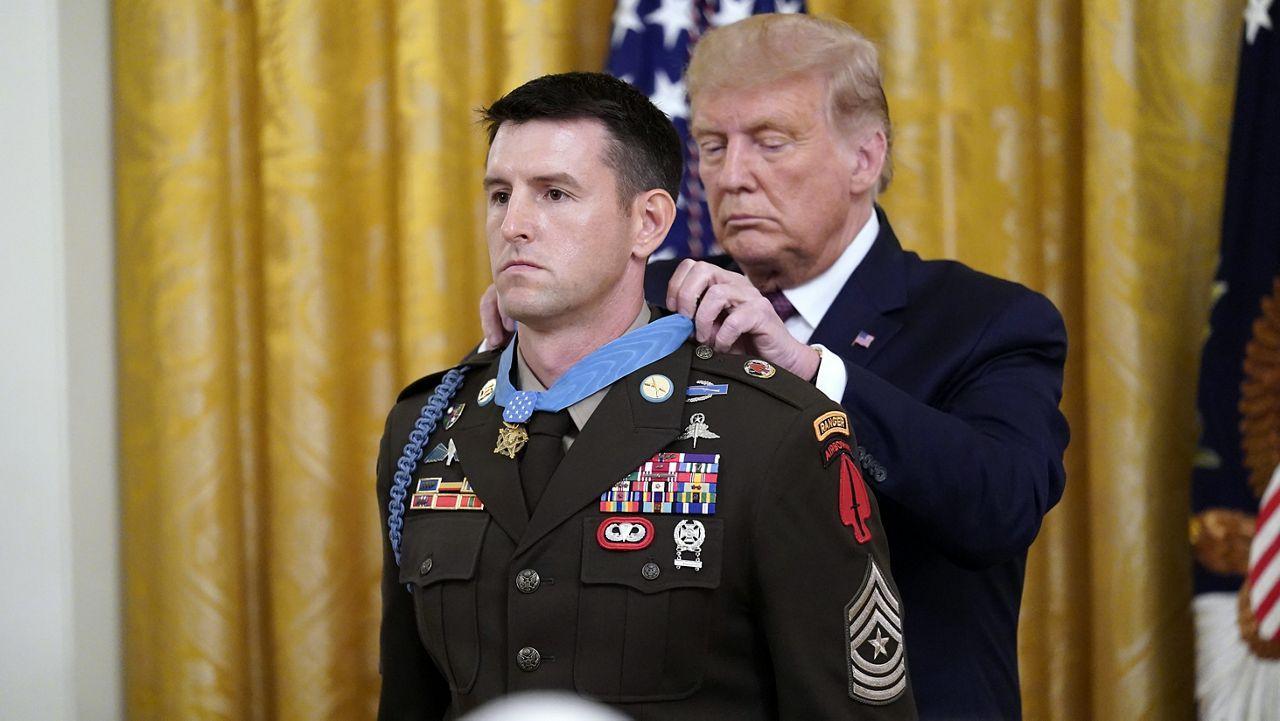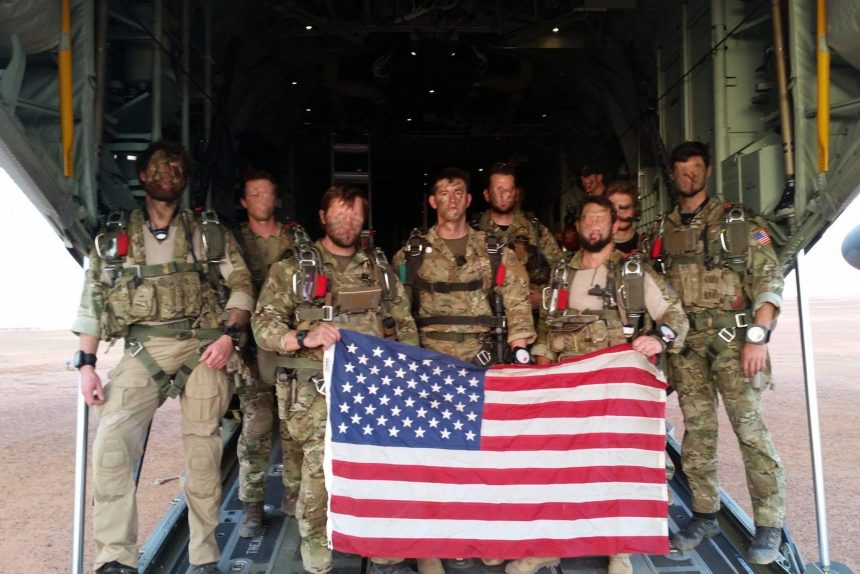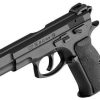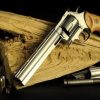U.S. Army Sgt. Maj. Thomas Payne was presented the Congressional Medal of Honor by President Donald Trump on Friday ceremony for his actions in a 2015 daring raid that rescued 70 Islamic State-held hostages from a prison compound near Hawijah in northern Iraq. Trump described U.S. Army Sgt. Mayor Thomas “Patrick” Payne as “one of the bravest men anywhere in the world.”
Mission
On October 22, 2015, covered by night, operators from highly-secretive Army 1st Special Forces Operational Detachment-Deta alongside Kurdish commandos boarded U.S. CH-47 Chinook helicopter. Helicopter flew toward the town of Hawijah, Iraq carrying out commandos to their mission.
The mission was set to rescue 70 Islamic State-held hostages who were held in a militant-run prison in Hawijah, Iraq and who were facing ‘imminent execution’. The mission went bad from the very beginning. Only seconds after helicopters landed on their objective, outside the compound, Delta operators knew their mission was off to a chaotic start. The initial plan was to support Peshmerga commandos, but after they failed to breach the wall to enter the compound. The Kurdish attack on the compound stalled, and Delta operators responded.
“Ramp drops; its complete brown-out, part of the compound was already in a pretty intense firefight,” Sgt. Maj. Thomas “Patrick” Payne recalled in a video interview released by the Army this month.
As rehearsed, the operators quickly split into two assault groups to attack separate buildings where ISIS militants were holding more than 70 Iraqi hostages. The first assault team with mostly Kurdish operators was momentarily slowed and almost pinned down by interlocking fields of enemy fire. Despite they were supposed to overlook the Kurdish operaotrs, Master Sgt. Joshua Wheeler know he needs to do something to overcome the initial shock. He looked back at his team, motioned forward and shouted: “On me!”
His team fired and moved forward, fired and moved forward. Fierce close-quarters fighting claimed the life of Payne’s teammate, Master Sgt. Joshua Wheeler. It happened before the militants were neutralized and hostages were freed.
In the second assault group assistant team leader then-Sgt. 1st Class Thomas “Patrick” Payne heard the “man down” call over the team radio and immediately dispatched his combat medic. The Kurdish operators in his attack cell seemed disheartened by the quick news of American casualties. Then another American operator stepped forward, swept his arm around the group and then pointed for them to look him in the eyes.
“Follow me!” Payne shouted and moved forward.
Thomas Payne’s team made it to the objective and quickly cut the lock on the prison door, freeing nearly 40 hostages. The expressions of joy and surprise on the faces of the Iraqi prisoners, many of them weeping, were stunning. But Payne and his team still had a job to do.
The sound of a furious firefight at the first objective, 30 or 40 yards away, was intense. At that moment Thomas Payne received the call for help over the radio he couldn’t refuse. He looked at his teammate and nodded towards the deafening sound of heavy gunfire. The radio call for help at a critical moment in the mission triggered a profound determination in Payne.
“Let’s get into the fight,” was all Payne said.
The second building holding hostages inside the compound was already on fire when Thomas Payne and another Delta operator approached in the night. ISIS militants barricaded themselves inside the building, holding the assault team at bay with repeating machine gunfire. The Assault group was also taking fire from an enemy position to the west.
Thomas Payne and his fellow operator climbed a ladder to the roof of the target building, looking for another way in. They used grenades and small arms fire from above to try and silence the machine gun. Then Thomas Payne heard screams of “Allahu Akbar!” from inside the building, and a moment after he heard the explosion of suicide vests.
Once on the ground again Payne and his team tried unsuccessfully to breach the building’s fortified walls and windows, and several of the Kurdish operators were hit by enemy fire in the attempt. There were fire and smoke everywhere. Time was running out for the hostages now trapped inside the building.
Near the front entryway, several Kurdish operators had already been wounded by enemy fire, but Thomas Payne was able to see inside to a hallway. The main prison door had the same type of lock that he had broken through in the first building. And he still had his bolt cutters on him.
“What do you got?” his sergeant major asked, appearing at his side.
“Sergeant major, I got the same prison door like the one in the building I just liberated!”
“Okay, I got it!” the sergeant major said in combat shorthand.
Thomas Payne gripped the bolt cutters tightly. Then he ran into the burning building to the sound of gunfire all around, while his teammate provided cover fire.
He managed to cut the first lock on the prison door and was coughing and nearly overcome by smoke inhalation when he staggered out of the burning prison building. Once outside he handed the bolt cutters to a Kurdish operator, who tried unsuccessfully to cut the second lock before bolting out of the building.
With only minutes to spare before the hostages would be burned to death, Payne seized the bolt cutters and once again ran back into the inferno. The smoke inside the building had dropped to below his waist, and the acrid air burned in his lungs. Yet somehow he found the strength to cut the second lock and kick the door open.
The hostages inside were coughing and weeping, many of them disoriented and too afraid to move in the midst of so much gunfire. Payne forcefully directed the group to the entryway, physically grabbing and pulling some of them towards the doorway as enemy fire tore through the walls. Outside his teammates created a human wall, standing shoulder to shoulder and using their body armor to shield the hostages from ISIS fire as they streamed from the building.
Thomas Payne entered the burning building two more times to guide the last disoriented hostages to safety, ISIS fighters still firing from their barricaded positions in the rear of the prison. He appeared in the smoke-filled doorway a final time, and then issued the call that everyone on the raid was anxiously waiting to hear.
“The last man out!” shouted Payne.
Medal of Honor for Delta Operator
For his actions that day, Payne will become the first living Delta Force operator to receive the Medal of Honor, multiple sources confirmed to Military.com. Army officials have identified Payne as a Ranger, but they have not publicly confirmed his affiliation with the elite and highly secretive Delta Force (1st SFOD-D, CAG, Combat Applications Group).

President Donald Trump draped the nation’s highest military award around Payne’s neck during a ceremony on the anniversary of the September 11 terrorist attacks — a day that compelled Thomas Payne to enlist.





